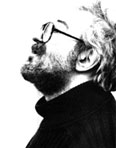Dedication
Introduction
Dan Ariely
Walter Bender
Steve Benton
Bruce Blumberg
V. Michael Bove, Jr.
Cynthia Breazeal
Ike Chuang
Chris Csikszentmihályi
Glorianna Davenport
Judith Donath
Neil Gershenfeld
Hiroshi Ishii
Joe Jacobson
Andy Lippman
Tod Machover
John Maeda
Scott Manalis
Marvin Minsky
William J. Mitchell
Seymour Papert
Joe Paradiso
Sandy Pentland
Rosalind Picard
Mitchel Resnick
Deb Roy
Chris Schmandt
Ted Selker
Barry Vercoe
Seymour Papert
My passion is learning: doing it, thinking about it, promoting it.

Finding the Forest, Resisting the Trees: A Drama in Three Acts
Act One: Twentieth Century, Second Quarter.
I was lucky to begin my academic career when the digital world was itself just beginning. It was much easier then to see the big picture and develop habits of mind matched to pursuing fundamental developments. In a nutshell, we knew that "being digital" was the key to opening new fields, such as artificial intelligence, and deeply changing established ones, such as communications, entertainment, and the one on which I eventually concentrated: learning.
Act Two: Twentieth Century, Third Quarter.
Confusion and temptation. Digital explosion makes it harder to see which projects are fundamental. Huge funding is available, but favors short-term results. AI shifts from envisaging general super-intelligence to mechanizing isolated, low-level operations. The digital avant-garde in education shifts from recognizing the system as obsolete to making wares to support it. I rationalize my involvement as "doing good," but it blurs the focus on the big picture of where learning is going.
Act Three: Twenty-First Century, First Quarter.
The world has had its digital binge. It is ready for deeper change. I see my contribution as helping to birth a perspective on learning: not "education" or "school," but a field that is bigger and essentially different from anything that has existed. My best analogy would be the focus on the environment, which was first promoted in the 1960s by a small group of activists, and has now grown into a global presence in academia, popular culture, and politics.
First computer: a Boolean-deduction engine, which I built in 1946 as an 18-year-old student at the University of Witwatersrand in South Africa before I heard of any more serious computers